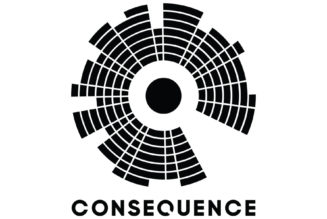
During an appearance on “The Back Lounge” podcast, vocalist Joakim Brodén of Swedish metallers SABATON spoke about why he and his bandmates continue to exist as a self-managed entity — a rarity among groups operating at their level. He said (as transcribed by BLABBERMOUTH.NET): “We tried twice to involve people for very short amounts of time, but it never worked out, really. In the beginning, it’s not by choice; it’s by necessity. We wanted a manager who had some connections who could get us where we wanted to be faster, I guess, back in the days. But right now, no, we’re happy where we are. Nobody’s gonna care as much about SABATON as we are gonna do. But it would be unfair to say that it’s only us in the band doing it. We sort of built an organization which would be partly doing the management. So we have people, of course, helping us out and advising us.”
Joakim also talked about the fact that SABATON runs its own merchandising operation, which is also extremely unusual for a band of its size. He said: “I do understand why other bands don’t do it, ’cause it’s a shit-ton of work [laughs], but at the same time, we tried to have other people at a certain point, but we weren’t happy with the results. We had sort of the same thing as the management thing there; we weren’t happy with what we were getting, sort of, so we had to build our own infrastructure and get things going on that part as well. Which now, in hindsight, is really good…”
He continued: “That’s the luck of having somebody like Pär [Sundström, SABATON bassist] in the band [laughs], who… I remember a couple of years ago — I think this is probably quite a few years ago — he called me and he said, ‘Dude, we’ve gotta do something. Can I book a show somewhere?’ Because we were [in the middle of] a songwriting period. So I had my hands full because I usually deal with most of the musical side and he deals with most of the business stuff. And he called me and said, ‘I’m understimulated. I need to do something. Can we book a show? Can we do something?’ And I [was], like, ‘Yeah. We can do something. I’m coming along quite nice with the songwriting.’ And then I asked him, ‘So what have you been doing today?’ ‘Oh, I went up at seven. I had breakfast, watched the news. Then I worked. Then I had lunch in town, then I went back to work, and now it’s five o’clock and I’ve got nothing to do.’ And I’m, like, ‘You basically described a nine-hour working day and you’re understimulated. What the fuck is wrong with you?’ [Laughs]”
Last September, Sundström addressed SABATON‘s decision to work without an outside manager during an interview with Music Connection. He said: “You start a band because you love to play. That’s how you start a band — you want to play your instrument in a band. And there was no difference for me. And that’s the first thing you do as a band — you get together, you get into a rehearsal room and you start playing some songs. After that, you need to expand, you need to grow, you need to do something. You need to call somebody to have a gig, and somebody in the band has to pick up the phone and call that somebody to get a gig. And then somebody has to do a poster. And then somebody has to arrange that somehow we get there or that there’s technical things there. So somebody has to do that. And I can’t just stand and watch while things are not happening. So I just jump on directly and do all that stuff. So no matter if it became designing a tour poster, album artwork or it came to arrange a recording session… And eventually, these things evolve, and suddenly you are dealing with economy, you are dealing with logistics, you are dealing with legal aspects. So I started to pick up that. I have no training whatsoever, but suddenly I needed to know how to market myself, I needed to know how to present something in a good way, I needed to know how to sell it, how to charge for it, how to account for it and how to get the show on the road. And along the years, I think I’ve been doing pretty much everything, no matter if it was fixing the tour bus or repairing it from damages to being a guitar tech. I am also a licensed pyrotechnician. I’ve been hanging lights in the roof. I built my own festival and a cruise, and promoting tours, festivals, shows, other bands, marketing that. And it’s all because I have an interest in learning things, and I don’t want to sit and watch nothing happen; I can’t do that. I just have to make things happen. And that’s why I just jump on to things, and eventually it grows and grows and grows.”
He continued: “I think I’m quite demanding. And I love this band so much that I don’t want too much other… I don’t mind other people to come in and help — of course not — but it would be difficult for another manager to come in and do this in a better way than I would do it. The other way we have done it is that the SABATON team has been growing. So everything we’re doing in-house. Today we run the label business inside. We do the management completely by ourselves. We do all the logistics for tours. We book it all. We book whatever it may be — from a hundred crew members, 10 trucks and whatever we need, we have it in-house. We have huge warehouses. We own so much stuff that it’s crazy. I was actually going through it two days ago in our main warehouse for one of the projects, and I was just looking at costumes. And I realized that we can outfit entire armies of Vikings, crusaders, Spartans, Greek warriors, World War I troops from France or from Belgium or World War II soldiers from the United States, modern armies… We have pile after pile after pile, or crates after crates with clothes, just because of different projects. And we always think that we take control over things. We don’t rent it, we don’t outsource it — we control it, we own it, and we put it on and we do it ourselves. Same with a lot of photo sessions, music videos — we produce them, we direct them, we are involved in the whole production of it. The albums, we are the main producers of our albums. We do things our way. And it’s demanding, but we have a big team. And we are constantly growing. And even during the pandemic, we did pretty well. Even though we couldn’t tour, and we have a lot of people that are depending on touring, but we still did well. We run our own mailorder; it has several people. We also developed that further. We [do it] completely by ourselves. We don’t use any merch company. We develop the stuff ourselves. We design it, we source it, we market it and we have it in our own mailorder.”
Seven months ago, Swedish newspaper Aftonbladet reported that Brodén and Sundström were ordered by the Swedish Tax Agency (Skatteverket) to pay hundreds of thousands of dollars in tax surcharges.
The Swedish Tax Agency, which manages civil registration of private individuals and collects taxes such as personal income tax, corporate tax, VAT and excise tax, believed that Brodén and Sundström had not reported their income from USA tours in 2016-2018 correctly. As a result, the musicians were told that they would have to cough up a substantial amount to settle their debt.
Brodén, who writes all of the music for SABATON, was the one who faced the biggest tax blow, having been ordered to pay back more than two million Swedish kronor (more than $233,000).
Brodén and Sundström claimed at the time to have followed the United States – Sweden Tax Treaty which covers double taxation with regards to income tax, corporation tax, and capital gains tax, and insisted that they had hired experts to make sure the paperwork was filed properly. Despite this, the Swedish Tax Agency said that the accounting was not handled accurately.
Brodén and Sundström had the option to appeal the decision.
SABATON is considered to be one the most important bands to emerge from the Swedish modern metal scene, having been honored with five Metal Hammer Golden Gods Awards (including “Best Live Band” three different years) and nominated several times for the Swedish equivalent of the Grammy Awards, the Grammis. In 2016, SABATON‘s “The Last Stand” album debuted at No. 1 in three different European countries and cracked the Top 3 in four others. Brodén, Sundström, Chris Rörland (guitar), Hannes Van Dahl (drums) and Tommy Johansson (guitar) curate a festival of their own, Sabaton Open Air, that started back in 2008, as well as their own forward-thinking Sabaton Cruise which has been held since 2009.
Last month, SABATON announced “The Tour To End All Tours – North America 2022”, a 25-date U.S. trek that will include a special headline show at Montreal’s Place Bell, the band’s first-ever arena headline concert in Canada. The tour, produced by FPC Live, kicks off on Thursday, September 15 at the Paramount Theatre in Seattle, Washington, and will wrap up at New York City’s Hammerstein Ballroom on October 23. Supporting SABATON on all dates will be special guest EPICA, the renowned Dutch symphonic metal band.
[flexi-common-toolbar] [flexi-form class=”flexi_form_style” title=”Submit to Flexi” name=”my_form” ajax=”true”][flexi-form-tag type=”post_title” class=”fl-input” title=”Title” value=”” required=”true”][flexi-form-tag type=”category” title=”Select category”][flexi-form-tag type=”tag” title=”Insert tag”][flexi-form-tag type=”article” class=”fl-textarea” title=”Description” ][flexi-form-tag type=”file” title=”Select file” required=”true”][flexi-form-tag type=”submit” name=”submit” value=”Submit Now”] [/flexi-form]










Tagged: Alternative Music, music blog